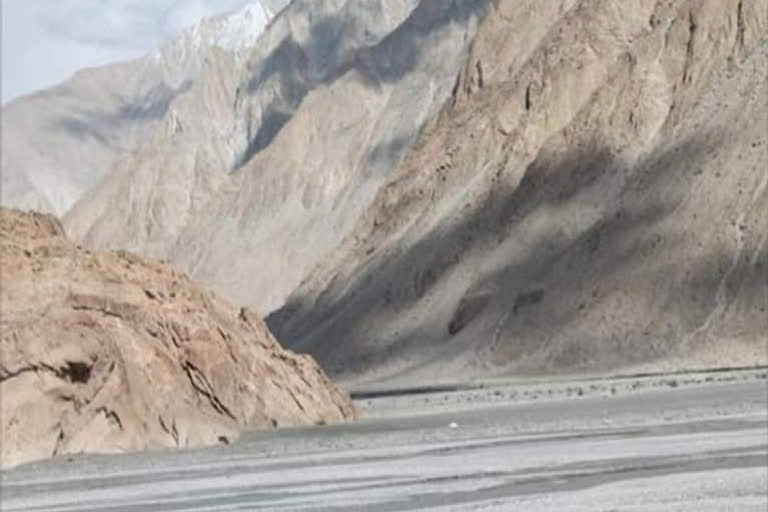Srinagar (Jammu and Kashmir): With India and China locking horns at the Line of Actual Control (LAC) in Ladakh, one of the places in this particular hotspot which has been in news, in addition to the hostile atmosphere, is the Galwan Valley and its Kashmir connection.
While experts have been discussing on how the tense atmosphere at the LAC will be doused off and how the relations between the two armies in the mountainous region will be improved, locals in Kashmir and elsewhere are puzzled how a Kashmiri surname - Galwan - has reached Ladakh and now became a focal point around the world.
Galwan valley near LAC is the name of a place where a stream known as Galwan is flowing down from glacial Himalayan mountains. The Galwan river, which runs 80 km westwards from its origins in Karakoram range through Aksai Chin and east Ladakh to join the Shyok river, a significant tributary of the Indus, is deemed to be of strategic significance in this region, with simmering border tensions between India and China. The valley was also a flashpoint during the 1962 India-China war.
This place is named after Ghulam Rasul Shah alias Galwan, who was of Kashmiri origin and his forefather, Karra Galwan, because of the fear and suppression by then Dogra rulers, had run away from Kashmir and settled in Baltistan.
ETV Bharat spoke with Galwan scion to know the place's history and about the person on whom it is named. Muhammad Amin Galwan, the grandson of Ghulam Rasul Galwan said that in during the Maharaja rule of Dogras, Karra Galwan had run away safely from the oppression and stayed in Baltistan.
Also read:Indian Army officer, two soldiers killed in scuffle with Chinese Army in Galwan Valley
Amin said that Ghulam Rasul was born in 1878 in Leh and at the age of 12 years he started guiding British travellers and explorers through the terrain of Ladakh and its routes from Karakoram to central Asia.
